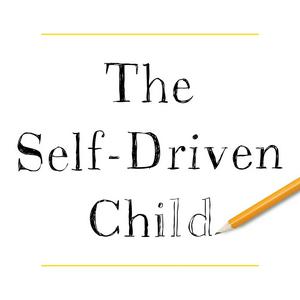In this episode of The Self-Driven Child Podcast, I sit down with my longtime partner, co-author, and neuropsychologist Dr. William Stixrud to dig deep into something hiding in plain sight: sleep. We talk about why so many kids, teens, and frankly adults are walking around chronically exhausted—and what that’s quietly doing to learning, emotional health, and overall well-being. This conversation grew out of a powerful question a student asked us after we issued a real-world “sleep challenge,” and it opened the door to a fascinating look at how sleep actually works in the brain.
Bill and I explore what happens when kids don’t get enough rest, why tired brains struggle with attention, memory, and emotional regulation, and how sleep might be one of the most underestimated tools we have for supporting mental health, learning, and resilience. If you care about helping kids thrive—and about thriving yourself—this is one you won’t want to miss.
Episode Highlights:
[0:00] – Why helping kids thrive is harder than it should be—and why sleep keeps getting overlooked
[2:15] – The student sleep challenge and the big question: what does sleep actually do to the brain?
[4:20] – How chronic sleep deprivation acts like chronic stress on developing brains
[6:00] – Emotional control, anxiety, and why tired brains are more reactive and negative
[9:00] – “Overnight therapy”: how REM sleep helps regulate emotions and perspective
[10:25] – Sleep deprivation, anxiety, and depression: cause, effect, and the vicious cycle
[11:59] – Why sleep regularity matters as much as total hours of sleep
[15:00] – Sleep, physical health, appetite, and injury risk for athletes
[17:20] – Why sleep deprivation mimics ADHD and wrecks attention and organization
[19:55] – The startling study showing how small sleep losses erase years of cognitive growth
[21:40] – How the brain replays and consolidates learning during sleep
[22:30] – Why sleeping more can literally make you better at skills—even without more practice
[27:15] – Practical, realistic strategies families can use to make sleep a shared value
[31:00] – Why we need collective action, not lectures, to help teens get the sleep they need
Links & Resources:
https://www.psychologytoday.com/us/blog/the-self-driven-child/201807/why-its-always-better-to-sleep-on-it
If this episode has helped you, remember to rate, follow, and share the Self-Driven Child Podcast. Your support helps us reach more people and create more content that makes a difference.
If you have a high school aged student and would like to talk about putting a tutoring or college plan together, reach out to Ned's company, PrepMatters at www.prepmatters.com


